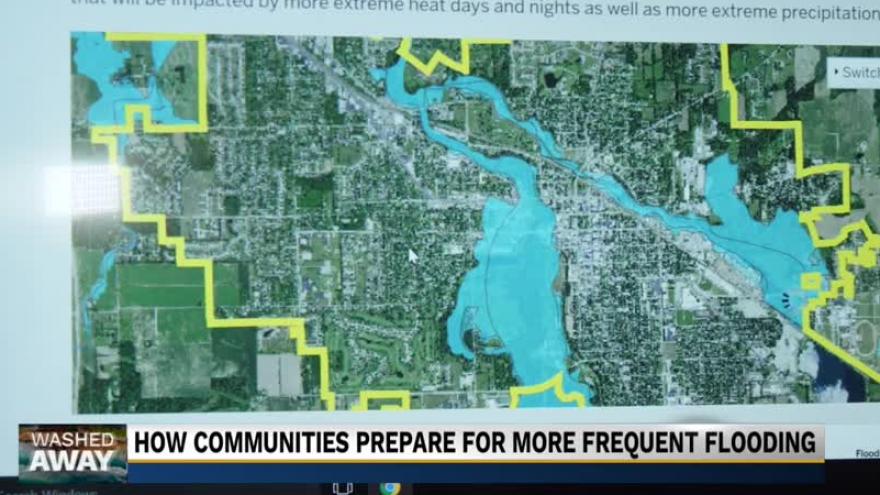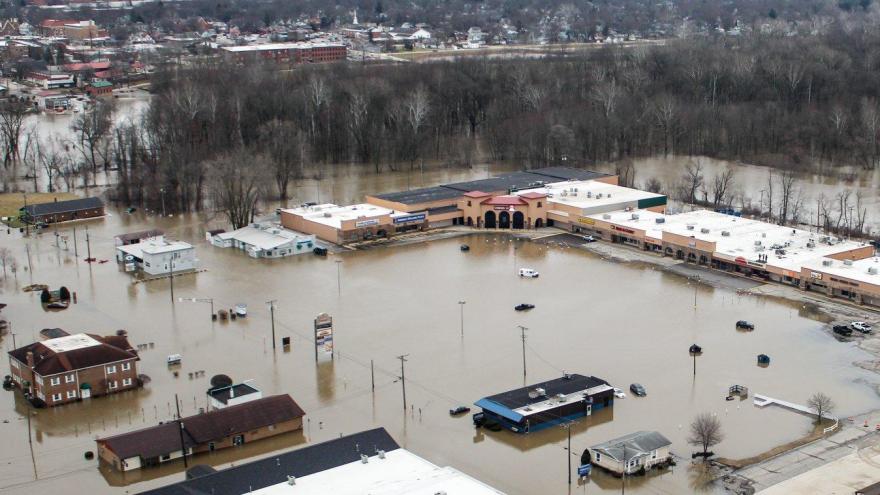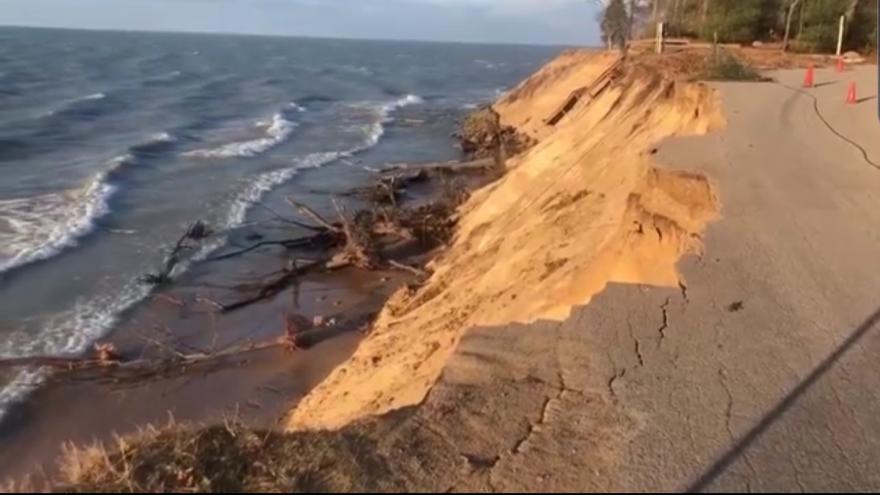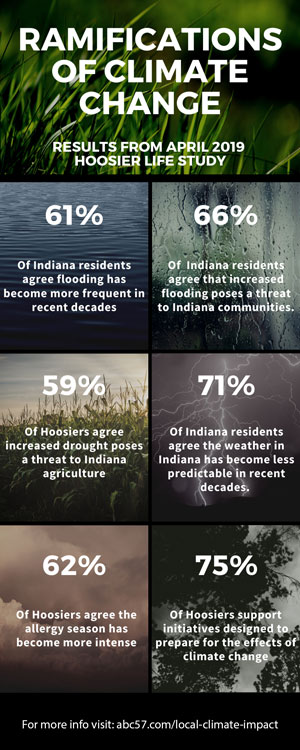See Also
It’s their mission to help bring sustainable solutions problems caused or worsened by climate change.
“Resilience” is defined as “the capacity to recover quickly from difficulties.”
How to actually do that is a little more complicated, especially on the local level.
“Resilience is a relatively complex concept that most people just think of as I’m going to bounce back, but there's a whole lot more to resilience than that,” says Dr. Diane Henshel, who works at Indiana University’s O’Neil School of Public & Environmental Affairs.
She also explained there are four steps to resilience:
1. Planning - Prevent things from going wrong in the first place.
2. Minimize Impact - Can you move things/people out of the danger zone?
3. Recover - How quickly can you respond and rebuild?
4. Adaptation - How can you adjust to the next event?
You can watch the full video of Dr. Henshel’s explanation above plus a web-exclusive montage of our interviewees’ answer to “What is Climate Resilience?”
Resources:
Climate Resilience Portal from the Center for Climate and Energy Solutions
C2ES defines climate resilience as: "the ability to anticipate, prepare for, and respond to hazardous events, trends, or disturbances related to climate. Improving climate resilience involves assessing how climate change will create new, or alter current, climate-related risks, and taking steps to better cope with these risks."
Environmental Resilience Institute at Indiana University
ERI defines Climate resilience as: "the capacity for built, natural, and human systems to avoid, absorb, or respond to challenges introduced by environmental change."
Hoosier Life Study 2019 results -
some results are highlighted in the infographic
Purdue Climate Change Research Center
Purdue: Indiana’s Past & Future Climate: A Report from the Indiana Climate Change Impacts Assessment


















